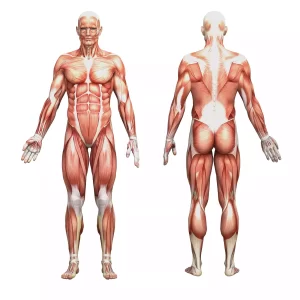A lack of liveliness despite an adequate amount of food, water, and oxygen is always the result of chronic muscle contraction and, thus, increased muscle tone, which is usually the result of repressed emotions and excessive self-control over self-expression through conditioned responses acquired in childhood. One of the surprising effects of reduced life energy is increased activity and the need for diligence. This usually happens in an attempt to gain the love of those around you. Most children who have suffered the loss of love believe that it happened because they aren’t worthy of being loved. Many parents cause this conditioned response by accusing the child of being too demanding, too lively, too disobedient, too dissatisfied, too….
The child gradually realizes that he must adapt to his surroundings, especially his mother’s needs, to continue receiving the love he depends on since he cannot provide the necessary energy for survival. The belief that love needs to be earned when this conditioned response is integrated into the membrane, and thus into the unconscious, continues into adulthood, where it often appears as an addiction to achievement and validation and a need for success. Such behavior is characteristic of a person of type A * (highly activated green light reflex), which manifests itself as an excessive desire to prove oneself, suppressed anger, and constantly present nervousness. Type A behavior is a factor in a person’s predisposition to heart disease and depression. Such behavior is also the cause of chronic fatigue, which is endemic to our culture.
Unfortunately, most people are unaware of how tired they are. Faced with daily pressures, they believe they must continue as they are used to if they want to survive. When they feel tired, they fear that they won’t be able to work. Most of them can’t say, “I can’t!” As children, they were taught that where there’s a will, there’s a way. By saying, “I can’t,” you’re admitting defeat, and by being defeated, they think they’re unworthy of love. In these individuals, there is usually a severe change in posture and loss of the ability to maintain a correct posture with slightly bent knees. The thighs, thus, lose their function of sensing and informing consciousness about the pressure under which the membrane is currently. All this leads to chronic pain.
Aleš Ernst, author of the AEQ method and AEQ breathing






